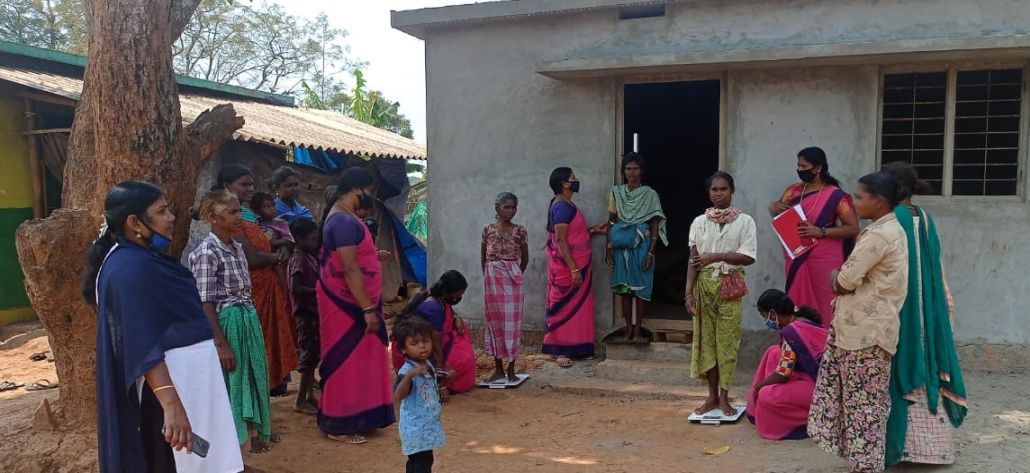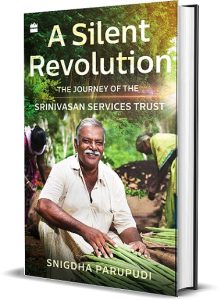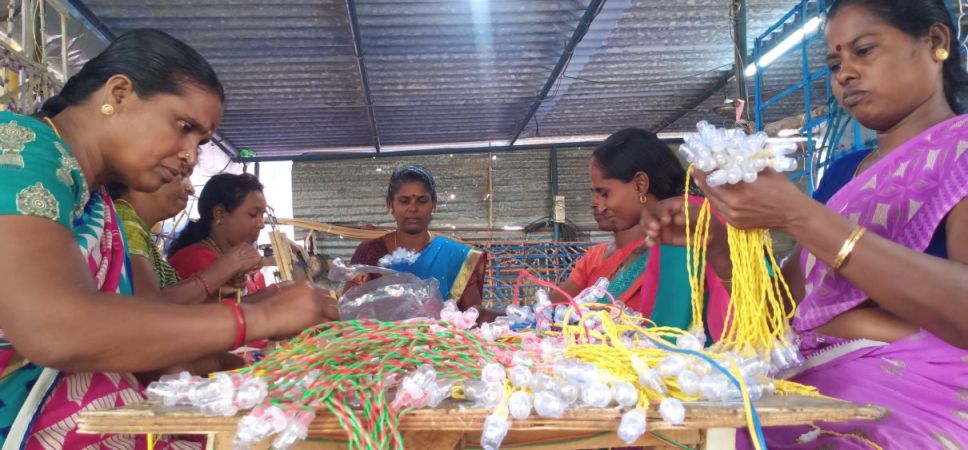Snigdha Parupudi was born and raised in Canada, then transplanted into a small town in south India. She is a gold medallist from Madras University and has experience working in the social sector. Her work has been published in Parabola, National Geographic Traveller, Open, The Indian Express, and The Hindu BusinessLine.
Her book, A Silent Revolution tells the story of the Srinivasan Services Trust. What started out as the charity wing of business group TVS Motor Company and Sundaram Clayton quickly transformed into something quite different, evolving into a model of community development that is self-sustaining and empowering. Today, SST has helped transform thousands of Indian villages and touched millions of lives.
Published by HarperCollins India, the book comes at a time when Corporate Social Responsibility has the potential to help create a new India. It illustrates just how a pioneering, well-organised programme can change lives for the better. In an interview with The CSR Journal, the author talked about what inspired her to write a book on this topic and her opinions on the CSR mandate in India.
Q 1: What drew you to a career in writing, and to social impact in particular?
I grew up finding solace in books and writing and have always been curious about people and their stories. I remember conducting journalistic interviews for the first time while in college and the experience was invigorating.
My first job was with a homeless shelter, I lived within the facility and the work was rewarding in a way that a more conventional office job could not have been. There was a sense of optimism that initially made me interested in developmental work and drew me to writing about it.
Q 2: What first inspired you to write a book about the CSR initiatives by the social arm of TVS Motor Company?
Having worked with various NGOs in the past, I was impressed with the way this organisation, the Srinivasan Services Trust, had chosen to work. As I spent time with the staff and communities involved in SST’s work, I was quite moved by what was being done by the Trust. It has been a real privilege to spend time with SST’s staff and the communities they work with.

There’s an old-world sincerity that I associate with TVS that runs through SST as well. What they have accomplished in such a quiet, understated manner is nothing short of revolutionary. Today, more than ever, I believe the world needs to hear the stories of hope and possibility that are part of SST’s journey.
Q 3: What kind of research and time went into the book?
I began working full time on this book in February 2017. The research process was extensive. It involved visiting ten project sites, across four states and spending time with the staff and community members in each area. I recorded all my interviews and tried to have smaller, one-to-one interactions with people, when possible. I interacted with local officials, farmers, Self Help Group members, teachers, and students to try and get a sense of how each community had evolved over the years. I ended up visiting some communities twice, after a gap of a six months, to get different perspectives. Telling the story of an organisation that involves many people meant a lot of revision, rewrites. In total, it took three years for this book to be completed.
 While writing, ‘A Silent Revolution – The Journey of the Srinivasan Services Trust’ I was very aware that what I was attempting to capture was the decades long work of hundreds of people. In my experience of writing the book, there was always room for my honest observations. The Trust’s staff from the Chairman, Mr. Venu Srinivasan to the grassroots staff in the field, were always very frank about their own challenges and how they learned from things that did not work. I have tried hard not to insert my personal opinions into this book. Rather, the challenge has always been to create space so that people feel comfortable sharing their experiences.
While writing, ‘A Silent Revolution – The Journey of the Srinivasan Services Trust’ I was very aware that what I was attempting to capture was the decades long work of hundreds of people. In my experience of writing the book, there was always room for my honest observations. The Trust’s staff from the Chairman, Mr. Venu Srinivasan to the grassroots staff in the field, were always very frank about their own challenges and how they learned from things that did not work. I have tried hard not to insert my personal opinions into this book. Rather, the challenge has always been to create space so that people feel comfortable sharing their experiences.
Q 4: How would you describe the ethos of Srinivasan Services Trust?
The Srinivasan Services Trust is an organisation that believes in partnership, collaboration and empowerment. Its work is driven by experience, empathy and professionalism. As a result, over the past two decades, working together with SST, many rural communities have been transformed. I believe that SST has discovered a unique model of community development that creates replicable change.
Q 5: How does the book title reflect the change that SST has brought forth?
The title of the book, ‘A Silent Revolution’ is a reflection of the impact of SST’s work over the past 25 years. The book tells the story of the silent revolution that has transformed rural communities all over the country. It is a revolution in which thousands of men and women living in some of India’s most impoverished communities, partnering with SST, have found the strength within themselves to turn their lives around. On the ground in these villages this means clean water, better infrastructure, improved school enrolment, better sanitation. At the same time, attitudes within these communities have also changed. It’s a revolution that has silently been unfolding, hence the title—A Silent Revolution.
Q 6: What sets the CSR of TVS Motor Company apart from other corporates in India Inc?
From my perspective, what immediately stood out was the length and breadth of engagement. The Srinivasan Services Trust, has been working in some communities, for over two decades. The focus of the work is holistic development, not limited to a single sphere. The work is participatory, holistic and empowering.


